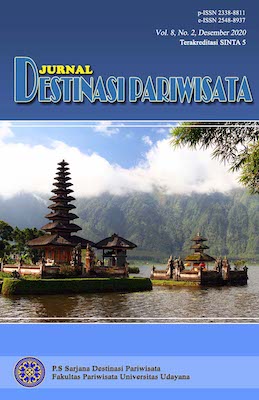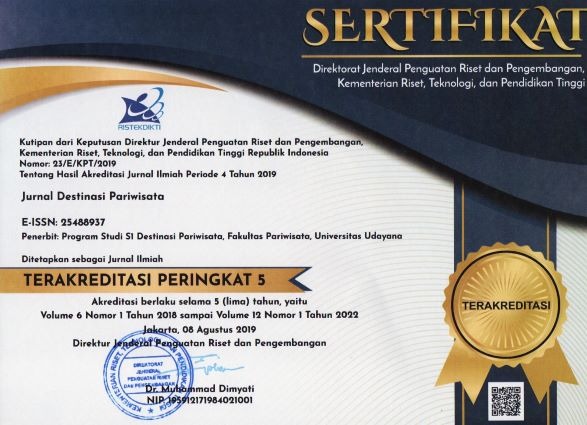Agrowisata Berkelanjutan Berbasis Kopi di Satria Agrowisata Desa Manukaya, Kecamatana Tampak Siring, Kabupaten Gianyar, Bali (Studi Evolusi Pariwisata)
Abstract
Agro-tourism is an alternative tourism activity that relies on plantations and agriculture as its main attraction. Along with the development of tourism, agro-tourism has now become an economic driving commodity for the surrounding community, so that agro-tourism is increasingly taken into account in the world of tourism. The development of an agro-tourism can not be separated from the evolutionary process that occurs through various stages of the beginning of the tourist attraction built until now. This study aims to determine the evolution of developments in Satria Agrowisata. The research method used is descriptive qualitative by conducting data collection techniques through online interview as primary data, and conducting online observations as secondary data. The results show that Satria Agrowisata can adapt well to the various changes that exist and continue to innovate in order to survive in the world of tourism until now. In Darwin's theory of evolution, he put forward two key words in his theory, natural selection and adaptation. Natural selection as a mechanism for evolutionary change, and adaptations that occur in its development over time.
Keyword: Evolution, Agrotourism, Satria Agrowisata, Bali.
Downloads









